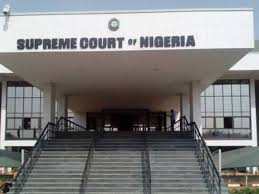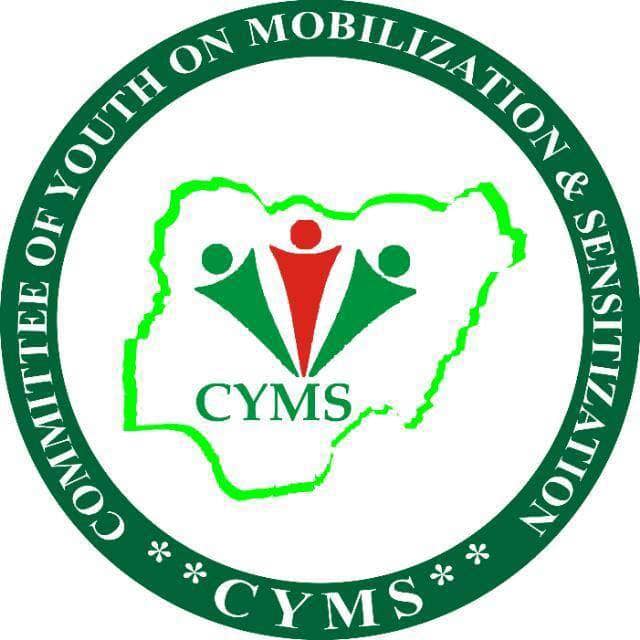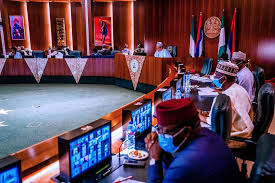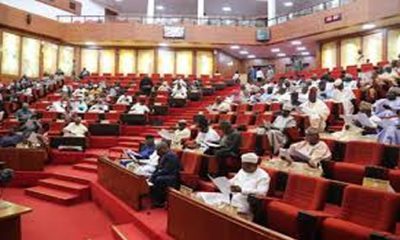Economy
Supreme Court Judgment on LG Financial Autonomy: Implications on Nigeria ‘s political landscape [Part 1]

By Dr. Isaac Achimugu, AP, CMA, MJP
The recent supreme court of Nigeria’s land mark judgement returning financial autonomy to the Local Government Councils (LGSs) in Nigeria has come at a time that most LGCs in Nigeria have become mere appendages of state governments, with governors controlling virtually every dime allocated to them from the federation account. This pathetic situation spanning over 2 decades greatly undermined the statutory pride of the LGCs being the third tier of government as enshrined in the Nigeria constitution.

At its degenerated stages, most of the governors simply appointed their loyalist to administer the LGCs without conducting local council elections as required by the constitution.
In some cases, these Care taker chairmen were merely known as Liaison Officers (LOS) who by official appointment, were Senior Special Assistants to the Governors. What this implies is that the Governors were in total control of the administrations at two levels, at the 2nd tier as well as the 3rd tier. They run the states as governors and administer the LGCs by proxy This deviant posture constituted a fraudulent breach of the Nigerian constitution, an aberration that saw the grassroots people at the end of an exploitative relationship in which they were the inferior partners.
So far, the governors have enjoyed illegal absolute control of local government funds for upwards of two decades, to the extent that they never saw any need to conduct elections into the local councils. At the time of Justice Emmanuel Agim’s led landmark judgement on 11th July 2024.
In many states, governors were more of Demi-gods who wielded enormous power that no one dares to challenge. Therefore, they take pleasure in oppressing and suppressing their supposed electorates and wasting the local government funds on frivolities and fanfare. Consequently, the LGAs gradually reduced to shadows of themselves with many of the council secretariats overgrown with grasses due to years of neglects occasioned by paucity of funds needed to embark on basic sanitation and cleaning, not to talk of fixing eroded access roads to and within the LGC secretariats.
It is appalling to observe that the third Tier of government, which is regarded as the closest to the electorates, became the farthest to them, as their existence was under perpetual threat. The LGAs were left to breads insecurity and poverty. Worst of it, the LGCs and the grassroots people became voiceless, and any attempt to seek clarifications on issues that borders on their well-being or voice out concerns on obvious frustrations and marginalization, or even try drawing the attention of the demi gods to their plights would be met with severe consequences.
You would agree with me that the aforementioned scenarios played out in almost all the states despite the fact that this ugly trends have no place in the practice of decent democratic governance across the world. The decision of the Supreme court judges that aptly described state governors as ‘dangerous species to the development of democracy’ couldn’t have come at a better time. The wide acceptance of this judgement across Nigeria, the jubilation among the grassroots people, the accolade pouring in for the supreme court judges and President Tinubu since 11th of July, 2024 goes to show Nigerians were helplessly enduring an impunity-induced absurdity. The nation’s joyous mood following the judgement provided adequate justifications fo the bold and revolutionary steps taken by the federal government at stemming the burden of servitude imposed on the LGCs by state governors who were expected to take lead in protecting them. Thus the judgement brought to an end, the age long abhorrent demonstration of emasculation and oppression of a critical tier of government.
It may be argued that the 7-man judges of the highest court in the land went too far in their submission considering the provisions of section 162 of the 1999 constitution as amended which empowers state governors to operate joint LG accounts. This is where some former and serving governors are in disagreement with the judgement. Former governors of Delta and Ekiti States, Chief James Ibori and Mr. Ayo Fayose have, at different occasions expreesed great concerns over the judgement which they saw as undue interference with the constitution. In the same vein, the Governor of Oyo State Seyi Makinde also, disagrees with the judgement lamenting that a possible lacuna may have been created between the constitution and the ruling.
However, borrowing a leaf from the principle of necessity and urgent need to address hardship, poverty and insecurity, the supreme court ruling couldn’t have come at a better time. According to the Special Adviser to President Tinubu on Information and Strategy, Bayo Onanuga as reported by Ireporteronline, the root cause of poverty and insecurity within the last 25 years was traceable to the emasculation of the local government councils by the governors. Recall that former President Buhari made several feeble attempts at addressing the financial suffocation of the LGAs by the governors but met bricks walls due to corruption and inexperience of his relevant advisors.
Although the governors are stupendously wealthy and seems to have enormous powers to sabotage government policies that are not in their favors, they however, underestimate the powers of the supreme court to enter rulings that set the stage for constitutional amendment. Already the national assembly has expressed readiness to amend the constitution in lines with the supreme court judgement for proper alignment and allay the fears being expressed by few negative voices. In essence the objections and options offered by the Makindes are considered as dead on arrival. After all no part of the constitution was casted in stone.

























